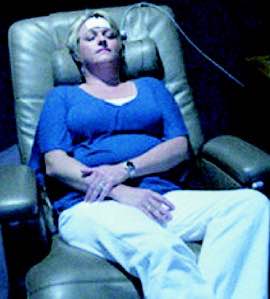
Understanding Biofeedback Therapy and its Impact on Stress and Burnout
In today’s fast-paced and competitive world, stress and burnout have become common issues that affect individuals from various walks of life. Stress and burnout can have detrimental effects on one’s physical, mental, and emotional well-being, leading to decreased productivity and overall quality of life. While there are various ways to manage and cope with stress and burnout, one effective approach that has gained popularity in recent years is biofeedback therapy. In this article, we will delve into the concept of biofeedback therapy and how it can help in managing stress and burnout.
What is Biofeedback Therapy?
Biofeedback therapy is a non-invasive treatment approach that involves using technology to monitor and measure physiological responses in the body, such as heart rate, blood pressure, and muscle tension. The goal of this therapy is to help individuals become more aware of their bodily functions and learn how to control them to improve their physical and mental well-being.
How does it work?
During a biofeedback therapy session, sensors are attached to specific parts of the body, such as the fingers, hands, or scalp, to measure physiological responses. The information collected by these sensors is then displayed on a monitor, allowing the individual to see their body’s reactions in real-time. Through this visual feedback, individuals can learn how to control their body’s responses and make necessary changes to achieve a state of relaxation and balance.
Benefits of Biofeedback Therapy for Stress and Burnout
Research has shown that biofeedback therapy can be highly effective in managing stress and burnout. Here are some of the ways in which this therapy can benefit individuals
1. Promotes relaxation: Biofeedback therapy helps individuals learn how to relax their mind and body by controlling their physiological responses. This can lead to a decrease in stress and tension, promoting a sense of calm and relaxation
2. Reduces physical symptoms of stress and burnout: Chronic stress and burnout can lead to physical symptoms such as headaches, muscle tension, and fatigue. Biofeedback therapy can help individuals reduce these symptoms by teaching them how to lower their heart rate and muscle tension, leading to improved overall health
3. Enhances self-awareness: Through biofeedback therapy, individuals become more aware of their body’s reactions to stressors, allowing them to identify and address the triggers of stress and burnout. This increased self-awareness can help in developing healthy coping mechanisms
4. Empowers individuals: Biofeedback therapy puts individuals in control of their own well-being by teaching them techniques to manage their stress and burnout. This can lead to a sense of empowerment and improved self-esteem
Biofeedback therapy is a valuable tool in managing stress and burnout. It not only helps individuals relax their mind and body but also provides them with the necessary skills to cope with stress in a healthy way. However, it is essential to note that biofeedback therapy may not be suitable for everyone, and it is best to consult with a trained professional before starting this treatment. With proper guidance and practice, biofeedback therapy can lead to significant improvements in one’s overall well-being and quality of life.
References
1. “Biofeedback for Stress Management.” American Psychological Association, www.apa.org/topics/b
2. “Biofeedback for Burnout: A Systematic Review and Meta-Analysis.” Frontiers in Psychology, www.frontiersin.org/articles/10.3389/fpsyg.2020.608285/full
3. “Biofeedback Therapy for Stress and Anxiety.” Healthline, www.healthline.com/health/biofeedback-therapy#stress-and-anxiety
4. “Biofeedback Techniques for Stress Management.” Verywell Mind, www.verywellmind.com/biofeedback-for-stress-management-
5. “What is Biofeedback?” Mayo Clinic, www.mayoclinic.org/tests-procedures/biofeedback/about/pac-20384664.
